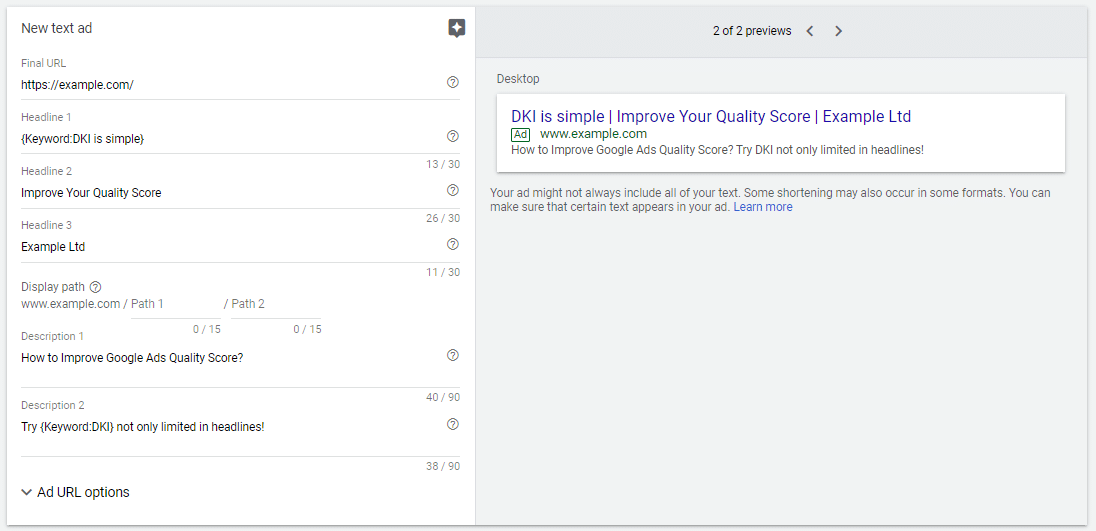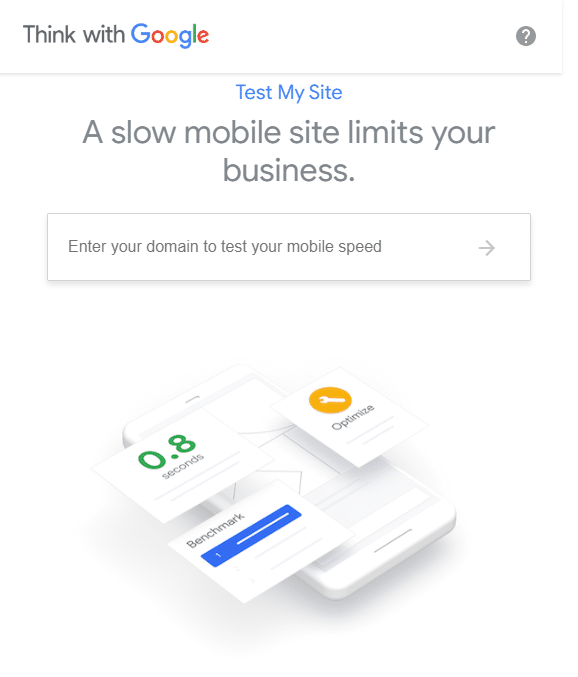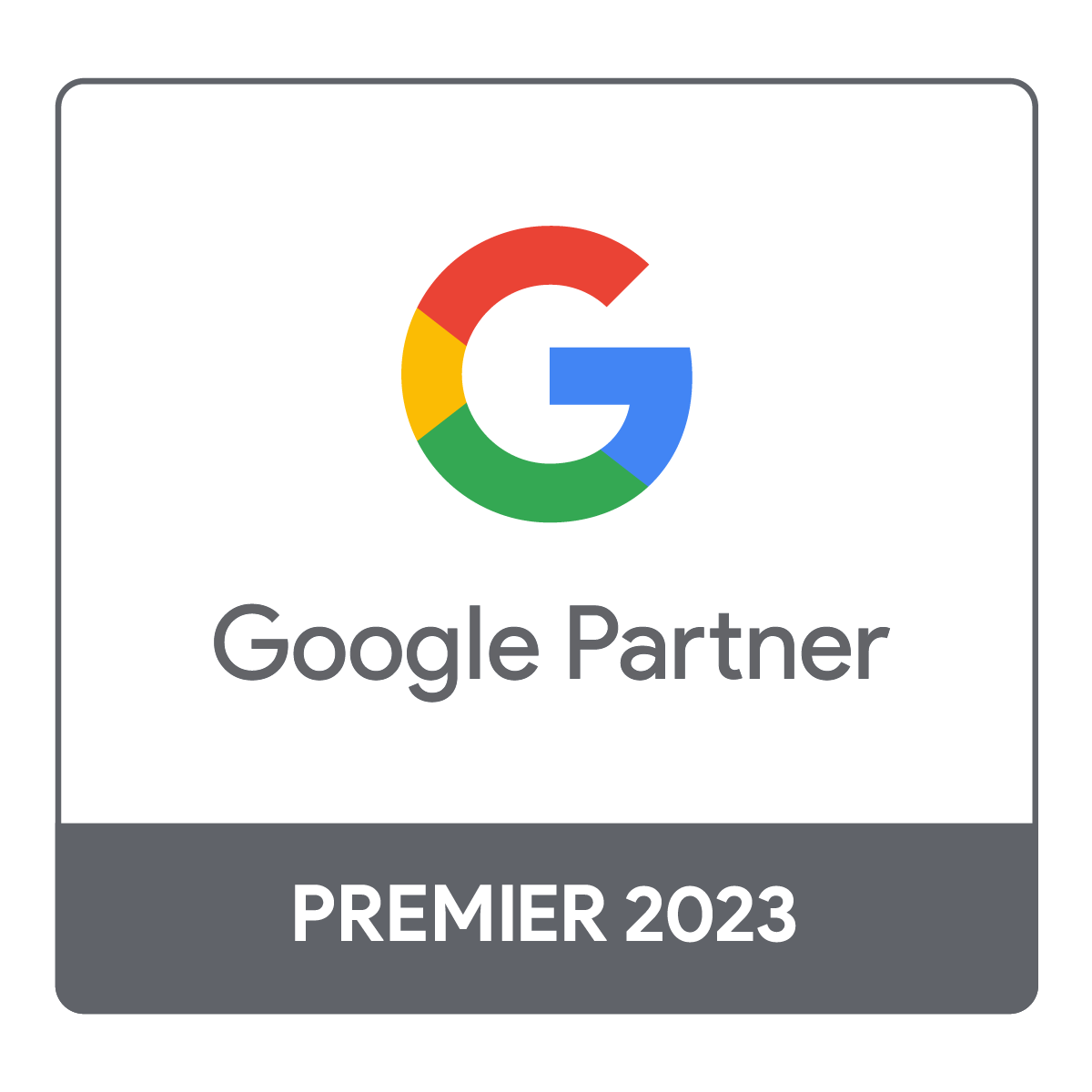The most measurable indicator that helps us to optimize Google Search Ads campaigns is Quality Score.
Quality Score is on the Keyword Level. Google’s system will evaluate each keyword in your campaigns and give them an individual score.
Why is this important? According to Google, Quality Score is one of the key factors affecting your ad rank and ad position, besides the bid price.
A good Quality Score can, in turn, help to minimize the required bid price, which ends up saving you money! Ad relevance Google Ads is key! Learn more below.
Table of contents
- Where to Start with Google Ads Quality Score Factors?
- Factor #1 – Can Ad Relevance affect Google Ads Quality Score?
- Factor #2 – Does Landing Page Experience Affect Your Google Ads Quality Score?
- Factor #3 – What about Expected CTR impacts your Google Ads Quality Score?
- Final Thoughts.
- FAQs on the quality score (aka ad quality).
Where to Start with Google Ads Quality Score Factors?
Besides the bid price, Quality Score is the most effective way to improve your ad rank.
We all know Quality Score is a combination of 3 dimensions, Ad Relevance, Landing Page Experience, and Expected CTR. Here will show the basic but essential ways to improve your Quality Score.
Factor #1 – Can Ad Relevance affect Google Ads Quality Score?
Ad Relevance refers to how closely connected your keywords and ads are.
The first step toward creating relevant ads is putting similar keywords in the same ad group. You should then create ad copies for those similar keywords.
The most direct way is to put your keywords into the ad copy itself. Besides using Single Keyword Ad Group (SKAG) to expand to hundreds of ad groups, one much easier way is to use Dynamic Keyword Insertion (DKI).
DKI is a Google Search Ads feature that dynamically inserts your target keywords into a designated place within your ad. Just use the parameter {Keyword: } in your headlines and descriptions and Google will put the keywords into the copy.
DKI can improve your Quality Score and Ad Relevance. However, be careful that not all cases are suited for the use of DKI, like competitor campaigns for example. It will not only help your competitors by promoting their name in your ads, but also have the risk of getting sued by the competitors.

Factor #2 – Does Landing Page Experience Affect Your Google Ads Quality Score?
Google wants its audiences to have the best experience possible while using Google Search. So, they want the website in SERP to have a certain speed that will not give a negative experience to audiences.
Plus, nowadays people are keener on using mobile devices to search for things. As such, you need to pay attention to your landing pages.
Therefore, Landing Page Experience will focus more on mobile page speed and mobile-friendly tests.
This is especially important as your ad will link directly to your website. Google has a great tool called ‘Think With Google’.
It is a way to benchmark Google ads you may be running and how successful they may be. It loads your website and gives technical suggestions on improving your website speed! Simply use it and pass the suggestions to your IT team.

Factor #3 – What about Expected CTR impacts your Google Ads Quality Score?
CTR is the most controllable parameter regarding an ad’s Quality Score and increasing the bid price.
Google expects that audiences will be keen on clicking the first few websites in SERPs, and the position is key to the expected CTR.
Although Google will not tell you the exact average ad position of your keywords, you can manage your best to improve the keywords expected CTR.
This will take up a large portion of your budget, so, reduce the worst performing keywords and focus your budget on keywords with high conversion rates.
Final Thoughts.
These are the easy but essential steps to improving your Google Ads Quality Score. We hope that they can be useful in your campaigns!
If you have any questions about your Google Ads, be sure to reach out to us now so that you can speak with one of our Digital Strategists (100% free). In the meantime, feel free to read over our Google Ad services too.
FAQs on the quality score (aka ad quality).
Improving your quality score for Google Ads?
Google Ads can be a great way to improve your website’s visibility and attract more visitors. However, if your ads are poorly targeted or have low-quality scores, they can cost you more money than they bring in. Fortunately, there are a few simple steps you can take to improve your quality score and get the most out of your Google Ads campaign.
First, ensure your ads are relevant to the keywords you’re targeting. Google’s quality score algorithm takes into account the relevancy of your ads when determining how much to charge per click. If your ad is not relevant to the keyword it’s targeting, you’ll likely see a high cost per click and a low-quality score.
Second, make sure your ad copy is clear and concise. Google prefers ads that are easy for users to understand. This means avoiding technical jargon and making sure your message is clear and to the point.
Finally, make sure your landing page is relevant to the keywords you’re targeting and the ad copy you’re using. Google wants users to land on pages that match their search intent, so if your landing page doesn’t meet this criteria, you’ll likely see a lower quality score. By following these simple tips, you can improve your quality score and get the most out of your Google Ads campaign.
Is there such a thing as a mobile ad quality score?
Google’s ad quality score is a rating system used to judge the quality of an advertiser’s creatives, landing page experience, and overall performance on Google Ads. The ad quality score is based on a number of factors, including click-through rate (CTR), relevance, and landing page experience.
However, there has been some debate as to whether or not Google has a separate ad quality score for mobile ads. Google has not explicitly said that they do or do not have a separate ad quality score for mobile ads. However, given that Google judges ads based on CTR, relevance, and landing page experience, it stands to reason that they would have a separate ad quality score for mobile ads given that mobile devices have different screen sizes and users interact with them differently than desktop computers.
In conclusion, although Google has not explicitly said whether or not they have a separate ad quality score for mobile ads, it seems likely that they do give that mobile devices have different screen sizes and users interact with them differently than desktop computers.
Is there such a thing as a keyword’s quality score?
There’s a lot of talk in the SEO world about keyword quality scores. But what are they, and do they really exist? Here’s what we know.
A keywords quality score is a number that Google assigns to a keyword to indicate its relative importance. The higher the keywords quality score, the more likely it is that your ad will be displayed when that keyword is searched for.
The keywords quality score is based on a number of factors, including the relevance of the keywords to your ad, the click-through rate of your ad, and the landing page experience. So, do keywords quality scores really exist? Yes, but it’s important to keep in mind that they’re just one piece of the puzzle. In order to be successful with SEO, you need to focus on creating high-quality content that will appeal to both search engines and potential customers.









